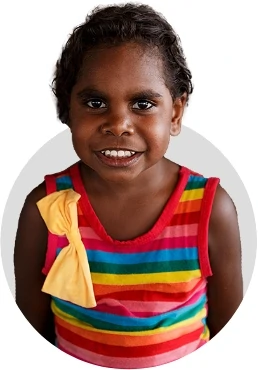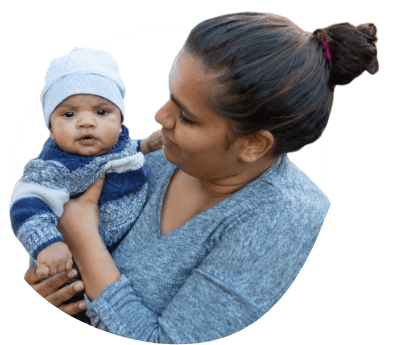Support for birth families
Parents of children who have been taken into foster care can experience a range of feelings, including sadness, grief, anger or blame. It can be hard to come to terms with the change in roles and responsibilities for your child’s care.
At Foundations Care, family inclusion forms an integral part of our approach with children and birth families. We recognise the important role of birth parents in the lives of children and young people and understand from experience that when the birth parents are respected in the process, the outcomes are significantly better for the child or young person. When it is in the best interests of the child, we work to restore children and young people to their families. Our approach is grounded in empathy, warmth and open communication to support a stronger parent-carer relationship.

This is achieved through:
- Ensure children see and know their families and ask our carers to meet and form relationships with families whenever possible;
- Train our teams and carers to respectfully partner with family in the interests of children;
- Invite families to participate in processes that affect their children;
- Welcome feedback from families about how we can improve;
- Support our teams to continue to build skills in family inclusion and reunification;
Your rights as a birth parent
The law on child protection gives you as birth parents the right to be involved in, and have a say about, what happens to your child when in care. While your child’s safety and welfare must come first, you still have the right to:
- Apply to the Children’s Court to appeal the order placing your child or children in care
- Be told where your child is unless the Department believes that this information would harm the safety, welfare and wellbeing of your child or their carer
- Be given information about your child’s carer unless we believe this would harm the safety, welfare and wellbeing of your child or the safety of the carer and their family
- Be informed of your child’s progress and development during their placement
- Ask for services that could help your child return to your care.

Family contact
Birth parents often want to remain part of their child’s life. Furthermore, children and young people in out-of-home care have a right to maintain contact with their family and other significant people in their lives, when it is in their best interests to do so.
We support birth parents in attending family visits with a child, at scheduled times and venues that accommodate all parties. Contact can also happen by letter, email, Skype or phone. We also acknowledge cultural and celebrated occasions, including Mother’s Day, Father’s Day and birthdays.
Inclusion and decision making
When in the best interest of the child, we involve birth families in our casework planning meeting. They occur annually and when something significant has occurred to the child or young person.
The Case work planning meeting is where the vast majority of decisions about your child are discussed. Types of decisions discussed at a case planning meeting can include:
- Education
- Your child’s wish to marry before they are 18
- Consent for your child’s surgery
- Deciding to remove your child from a particular foster care placement
- Approval to change your child’s name
- Approval for your child to enlist in the armed forces
- Approval for your child to enter an apprenticeship
- Your child’s carer planning to travel or move interstate
- Your child’s carer applying for a passport and/or wanting to obtain a passport on behalf of your child in care
- The carer is considering making application for sole parental responsibility of your child
Information sharing
We believe communication between birth parents and carers is essential to help a child develop a strong sense of identity and emotional safety.
Information to be provided to a child or young persons’ birth family or significant others, except where it is unsafe to do so, includes, but is not limited to:
- Placement information including general information about the child’s placement (whether the child/young person has remained in the same placement), and the general composition of the child/young person’s foster family
- Health status
- Special achievements
- Education progress
- General development

Connection with culture
At Foundations Care, we’re committed to supporting Aboriginal children and young people who are unable to live with their parents. We seek to keep families together and nurture a connection to culture.
We prioritise placement of Aboriginal and Torres Strait Islander children with their family, community or other Aboriginal and Torres Strait Islander family, where placement is safe for the child. Where children are placed with non-Indigenous carers, we support them in maintaining a connection with their family, community and culture.
Make a complaint, ask a question or tell us your ideas!
You have every right to complain should you wish to. We are here to listen and help. Fill out the complaint form or contact Foundations Care directly on 1300 395 005
You can also use this feedback form to ask us anything or give us your ideas about how we can be better. We would love to hear them.
For further information with regards to complaint timeframes and the complaints process from our end, please view our Practice Guide Feedback and Service Complaints click here and our Privacy Policy click here

Get real support for your foster care journey
At Foundations Care, we truly value our foster carers. If you’re considering becoming a carer, our team is here to support you.
Speak to one of our friendly team members today. We’re here to help and answer any questions.


